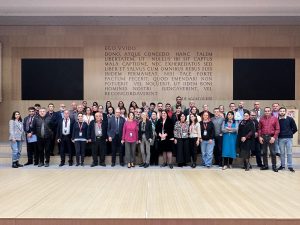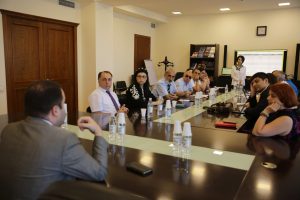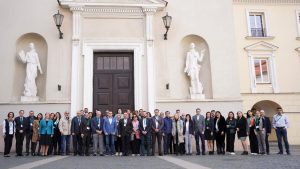ArmDoct

PROJECT SUMMARY
The ARMDOCT project addresses an urgent need in Reforming Doctoral Education (DE) in Armenia in line with the Salzburg Principles with the emphasis on policy, legal framework (including by-laws) and institutional procedures supporting integrative and internationally-oriented doctoral studies involving universities, research institutions and industry.
The action foresees:
- strengthening strategic, infrastructural & human capacities in Higher Education Institutions (HEIs) and Institutes of the National Academy of Sciences (SRIs), the Ministry of Education, Science, Culture and Sport of the Republic of Armenia;
- development of national new policy and legal framework, including by-laws for doctoral education in Armenia and further approval by national Ministry for pilot implementation;
- revision of institutional policies, procedures based on the redesigned national regulatory framework and design of the Institutional Handbook for Doctoral Education;
- establishment and operationalization of 5 Doctoral Schools creating synergies between HEIs, SRIs and industry;
- promotion of networking and long-term cooperation between Armenian and European HEIs for further internationalization of higher education research in Armenia.
VISION
Reformed Doctoral Education (DE) in Armenia in line with the Salzburg Principles with national and institutional policies and regulations supporting integrative and internationally-oriented doctoral studies involving universities, research institutions and industry.
AIMS & OBJECTIVES
Overall objective of the project is Reforming Doctoral Education (DE) in Armenia in line with the Salzburg Principles with the emphasis on policy, legal framework (including by-laws) and institutional procedures supporting integrative and internationally-oriented doctoral studies involving universities, research institutions and industry, and resulting in the establishment of Doctoral Schools.
Both the partners from the EU Member States and Armenia should reinforce their strengths and experience, previous lessons learnt, to overcome the developmental lag of Armenia in the organization of Doctoral education, research internationalization and support in strengthening the link between teaching, research and industry. It should be done considering shortages not only on the national, but also institutional levels.
This concept leads the project partnership to defining concrete project aims as:
- Capacity building of the staff from HEIs/SRIs, Ministry of Education and Science of Armenia (MESA)
- Development of new policy and legal framework, including by-laws for doctoral education in Armenia,
- Development/revision of institutional policies, procedures, and tools,
- Establishment and operationalization of new Doctoral Schools creating synergies between HEIs, SRI and industry,
- Promoting networking and long-term cooperation between Armenian and European HEIs for further internationalization of higher education research in Armenia.
Eurasia International University (Armenia) (EIU) (Coordinator)
AM partners
- French University in Armenia
- Armenian State Pedagogical University named after Khachatur Abovian (ASPU)
- Yerevan State Medical University (YSMU)
- Vanadzor State University named after Hovhannes Tumanyan (VSU)
- Yerevan Brusov State University of Languages and Social Sciences (YSULS)
- Yerevan State University (YSU)
- National Polytechnic University of Armenia (NPUA)
- Institute for Informatics and Automation Problems of the National Academy of Sciences of the Republic of Armenia (IIAP)
- International Scientific-Educational Center of NAS RA (ISEC)
- The Ministry of Education, Science, Culture and Sport of the Republic of Armenia (MESCS)
EU partners
- Catholic University of Portugal (UCP) (Portugal)
- University of Teramo (UNITE) (Italy)
- Jean Moulin University Lyon 3 (JML3U) (France)
- Vilnius University (VU) (Lithuania)
Official website of the project — https://armdoct.com/

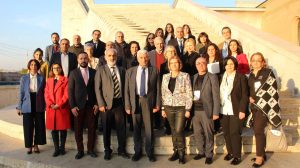 The Final Conference of ‘Reforming Doctoral Education in Armenia in Line with the Needs of Academia, Industry, and Current EU Practices’ (ARMDOCT)
The Final Conference of ‘Reforming Doctoral Education in Armenia in Line with the Needs of Academia, Industry, and Current EU Practices’ (ARMDOCT)
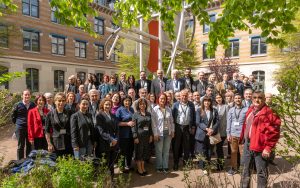
VSU representatives of ARMDOCT Project training in a Workshop at the Jean Moulin Lyon 3 University in France
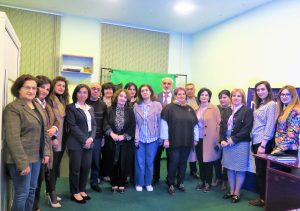 MEDIALAB Opening
MEDIALAB Opening
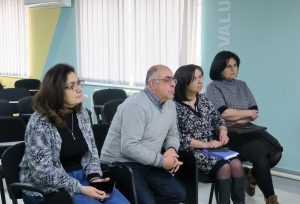 Online Meetings with Partners from the Catholic University of Porto within the framework of the ARMDOCT Project
Online Meetings with Partners from the Catholic University of Porto within the framework of the ARMDOCT Project
Study Visit of Vanadzor State University Employees to the University of Teramo within the Framework of the Erasmus+ ARMDOCT Project
Coordination Meeting of the ARMDOCT Project with the Participation of Partner Universities
Erasmus + Workshop in Vilnius under the ARMDOCT Program
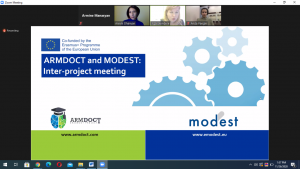 The consortium members of Erasmus + ARMDOCT and MODEST projects co-funded by the European Union met to discuss cooperation possibilities for the reform of Doctoral Education in Armenia and to strengthen the project outcomes on the national level
The consortium members of Erasmus + ARMDOCT and MODEST projects co-funded by the European Union met to discuss cooperation possibilities for the reform of Doctoral Education in Armenia and to strengthen the project outcomes on the national level
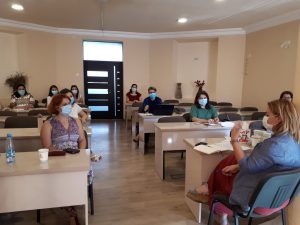 The second work package (WP2) of the “Reforming Doctoral Education in Armenia in Line with Needs of Academia, Industry and Current EU Practices” ARMDOCT Project was kicked off
The second work package (WP2) of the “Reforming Doctoral Education in Armenia in Line with Needs of Academia, Industry and Current EU Practices” ARMDOCT Project was kicked off
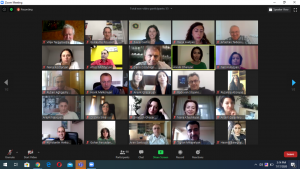 #ARMDOCT #Training #Day3
#ARMDOCT #Training #Day3
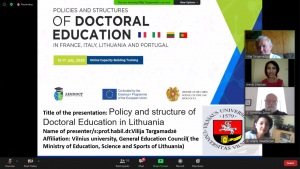 #ARMDOCT #Training #Day2
#ARMDOCT #Training #Day2
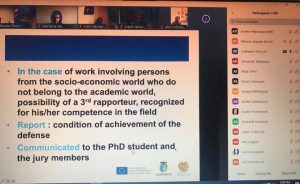 #ARMDOCT #Training #Day1
#ARMDOCT #Training #Day1
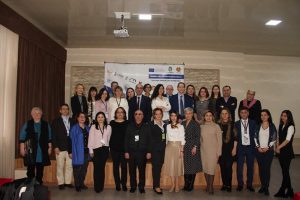 Erasmus+ CBHE “ARMDOCT” Project (Reforming Doctoral Education in Armenia in Line with Needs of Academia, Industry and Current EU Practices) was launched on 4-5 February 2020
Erasmus+ CBHE “ARMDOCT” Project (Reforming Doctoral Education in Armenia in Line with Needs of Academia, Industry and Current EU Practices) was launched on 4-5 February 2020
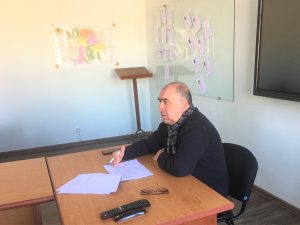 On 25 December, 2020, the Meeting of VSU ARMDOCT project staff and VSU PhD students was held at VSU
On 25 December, 2020, the Meeting of VSU ARMDOCT project staff and VSU PhD students was held at VSU
- CALL (+374.322) 41854 or 41855 - 160
- SEND E-MAIL info@vsu.am
- OUR ADDRESS Vanadzor, Tigran Mets 36

